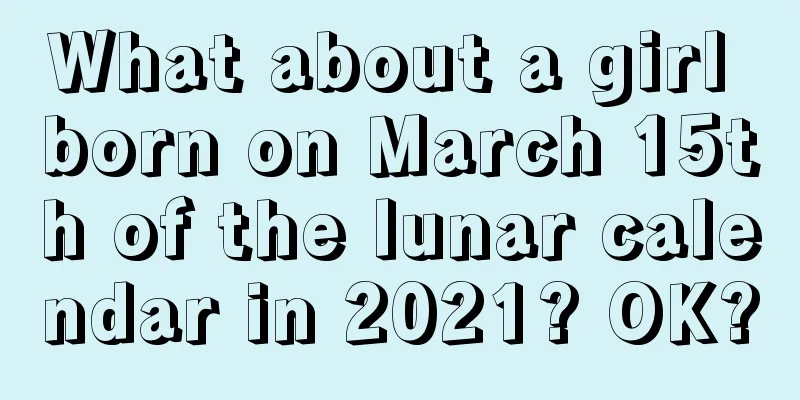Why do we celebrate New Year’s greetings during the Spring Festival? What are the customs of celebrating New Year’s greetings in different places?

Paying New Year’s greetings is an indispensable custom during the Spring Festival. People pay New Year’s greetings every year, but do you know why we have to do so during the Spring Festival? New Year’s greetings vary from place to place. What are the customs of New Year’s greetings in different places? Want to know more about the 2018 Spring Festival? Then continue to explore the 2018 Spring Festival special topic on the Fortune Teller website!Why do we celebrate New Year’s Day?New Year's greetings are a traditional Chinese folk custom and a way for people to bid farewell to the old and welcome the new. What we usually know is that on the first day of the first lunar month, parents take their children out to visit relatives, friends, and elders, wishing them a happy new year with auspicious words, and the younger ones must kowtow as a sign of respect, which is called "greeting the new year." The host family will warmly entertain them with snacks, sweets and red envelopes (lucky money). The traditional correct time to pay New Year's greetings is after midnight on New Year's Eve, when the new year really begins and everyone congratulates each other. Paying New Year's greetings before midnight is considered early New Year's greetings, as the new year has not yet arrived and it seems a bit perfunctory. Paying New Year's greetings after the tenth day of the first lunar month is considered late New Year's greetings, when the festive atmosphere of the new year has faded. Both early and late New Year's greetings are emergency or remedial measures to avoid regrets. There is a folk saying: "It is never too late to pay New Year's greetings if you are willing to do so."In ancient times, the original meaning of the word "New Year's greetings" was to congratulate the elders on the New Year, including kowtowing to the elders, wishing them a happy New Year, and asking about their well-being. When meeting friends and relatives of the same generation, one should also bow and congratulate them. On the first day of the New Year, people get up early, put on new clothes, go out to visit relatives and friends, greet each other, and wish each other good luck in the coming year. There are many ways to pay New Year's greetings. Some are for the clan leader to lead a group of people to visit every household to pay New Year's greetings; some are for colleagues to invite a few people to pay New Year's greetings; and some are for everyone to gather together to congratulate each other, which is called "group greetings." In the Song Dynasty, relatives and friends would send each other greeting cards, which were early New Year's cards. By the Ming Dynasty, the design of New Year's cards had become more perfect and exquisite. Not only was the sender's name and address printed on them, but "Happy New Year" and other blessings were also inscribed on them. With the development of the times, the custom of New Year's greetings has continued to add new content and forms. In addition to following the traditional way of greeting each other, people now also have started to use ceremonial text messages and phone calls to greet the New Year. New Year greetings customs in different placesNortheastern farmers visit relatives and friends to wish them a happy new year: After breakfast on the first day of the new year, except for the elderly who sit at home waiting to be greeted, everyone else dresses up and visits relatives and friends in their own village or neighboring villages to wish them a happy new year. Young people are separated by gender, and they go from one house to another, perform greetings, and then leave. Those who are a little older should sit for a while in the house where they are being worshipped.People in Beijing in North China regard the first day of the first lunar month as the beginning of the year. In the old days, in addition to celebrating at home, relatives, friends, colleagues and neighbors would greet each other from this day on, but this was limited to men, as women had to wait until the sixth day of the first lunar month to go out for New Year's greetings. In East China, Shandong and Northwest China, people kowtow five times during New Year's greetings: the first kowtow is to ancestors, the second kowtow is to parents, the third kowtow is to fellow villagers, the fourth kowtow is to the family, and the fifth kowtow is to relatives and friends. In Xiaoshan, Zhejiang, there is a practice of visiting ancestors' graves to pay New Year's greetings, which is called "Grave Paying New Year's Greetings". In Xiangshan County, Ningbo, there are many rules and etiquette for the new son-in-law to pay New Year's greetings in the first year of marriage. Among the gifts, lychees and longans are indispensable. This "combination" is called "Baotou" and "Baotou" is the most important gift. In Shanghai, when guests come to one's home to wish everyone a happy new year, after exchanging congratulations, the host will entertain them with tea and fruit, and serve them two "water-boiled eggs" boiled in white or brown sugar. In Taiwan, New Year's greetings (also known as New Year's greetings, New Year's greetings, etc.) are usually given before the fifth day of the first lunar month. When guests come to congratulate, they should be invited to taste sweets, such as red dates, candies, etc., and drink sweet tea, such as red date tea, to show the perfection and intimacy of the relationship, which is called "eating sweets". "When the children of relatives and friends come, they are given three, or a hundred or several dozen coins strung together with a red thread. This is called a tie." In Kaifeng, Henan, in the central China region , people pay great attention to making sure that the first family to which they visit during the New Year is a prosperous family, that is, a family where both parents are alive, brothers are well, and where money and profit can be obtained when praying for them. And everyone also hopes that the first person to come and wish a happy new year will also come from a prosperous family. In Xiaogan, Hubei, people first worship heaven and earth, family gods, and elders on the first day of the New Year, and then go out to pay New Year's greetings. New Year’s greetings are not based on relationship, which is called “New Year’s greetings for everyone.” When guests come to visit during the New Year, they must be invited to stay and treated with glutinous rice cakes. As the saying goes: When celebrating New Year and other festivals, the glutinous rice cake will crack. In Huangpi, Hubei, the order of New Year greetings is to first pay respects to heaven, earth, the emperor, parents, and teachers, then to ancestors, then to the hall, and then to set off firecrackers and open the door to go to the temple. After coming back from the temple, I pay New Year’s greetings to my own family on the first day, to my maternal uncle on the second day, and to my in-laws on the third day. For families that had a new death in the previous year, "the filial son should wear a white robe, a black cap, and a crown with an empty beam without a weft. He should ask his two brothers who are in mourning to also wear white robes to accompany him to the family's home to kowtow and express gratitude for the filial piety." This is called "taking care of the new spirit." In Hefeng, Hubei, "when guests arrive at home, if the host is asleep, the family members will respond by 'digging a cellar' that day." In Guangzhou, Guangdong in southern China , people eat breakfast and then visit relatives and friends in fancy clothes to wish them a happy new year. After the ceremony, the host asked us to sit down and took out a box of eight fruits, with red melon seeds in the middle and lotus seeds, water chestnuts, shredded coconut, lotus roots and other items around it. When the host invites you to dinner, you should say "ao jin", and when he invites you to dinner again, you should say "ao yin". If an unmarried teenager or child comes to pay New Year's greetings, the person being paid must give him some "lucky money". When women pay New Year's greetings, they always prepare a lacquer basket filled with melon seeds, tangerines, lucky money and other items to give to the person being paid New Year's greetings. And the person being worshipped gives her roughly the same thing in return. However, if the woman is newly married or has been married for a few years, people must send back two long sugarcanes, two lettuces, some leeks, and two water chestnuts to express their expectations for the new daughter-in-law. In Chaozhou, people visit relatives to wish them a happy new year after breakfast on the first day of the new year. When they go, they take orange packets to bring good luck to their relatives' home. The recipients of the greetings will return the orange packets as a way of expressing goodwill to each other. In Dongguan, when people meet on the street, they will say "Congratulations". When guests come, they will treat them with a gift box, which is called "eating big oranges". When children come, give them a red paper package containing silver or copper coins. In Pingle, Guangxi, when guests come on weekdays, they are usually only treated with cigarettes and tea, but during the New Year, betel nuts are added to the treat. If a child comes, he or she should be given oranges, rice cakes, water chestnuts and the like. When coin making was popular, copper coins were strung together with red thread as gifts. The value of copper coins ranged from a hundred to nine, which represented longevity and was called "hanging coins". After the use of copper coins was abolished, ten or eight copper coins, or two or four cents of silver coins, were wrapped in red paper instead. Some people use banknotes, which are called "Li Shi". In Ding'an, Hainan, the new bride has to stand outside the door holding betel nuts, allowing women passing by to look at her and give her betel nuts as gifts. On the New Year's Day, clans in Fuping County, Shaanxi Province in the northwest region gather their descendants to worship. After the worship, they pool money for a banquet, which is called "Jiezuo". On the second day of the New Year, relatives and friends give each other noodles and pork, which is called "festival greetings." On New Year's Day in Gaoling County, as soon as it gets light, people hang yellow paper on bamboo poles to worship the sky, which is called "receiving the God of Heaven." Charcoal is also hung on the door, which is said to drive away the plague. People in Shiquan County use yellow paper to make money, and hang them on doors on New Year's Day, which are called "Baogai Money". Lintong County regards the fifth day of the first lunar month as the "Sending Away Poverty Festival". Every family cuts paper figures and then throws them away at the door. On that day everyone must eat their fill, which is called "filling the five povertys." In Guiyang in the southwest , although the first day of the Lunar New Year is the day for relatives and friends to greet each other, every family closes their doors because they are afraid to receive the greetings from relatives and friends. When someone knocks on the door, the person inside will always look out carefully through the crack. Unless it is their family member or closest friend, they will never open the door, but will just keep saying through the door: "New Year's greetings? I don't deserve it, I don't deserve it! Please come over for tea some other day!" On this day, when children go to their relatives' houses to pay New Year's greetings, in addition to getting "lucky money", they also have to bring back a piece of "firewood" from their relatives' homes to show that they have returned with wealth. The new son-in-law must arrive at his father-in-law's house early on this day to pay New Year's greetings, where he will be treated to a warm banquet. In Hechuan, Sichuan, most city residents also keep their doors closed. When guests come to the door in person to wish a happy new year, it is called "please open the door to wealth." A red paper bag with the words "Chengbu" written on it is pasted in front of the door. Casual acquaintances will put red cards with their names on them in the bag, which is called "scattered New Year greetings." |
>>: Is the 21st day of the first lunar month in 2018 an auspicious day?
Recommend
Is the hexagram for the Spring Equinox in 2021 a good sign? What are the taboos during the Spring Equinox?
The spring equinox arrives, the sun is shining, an...
What day is February 21st in the lunar calendar 2018? What month and date is it?
Spring is a great time full of energy, with every...
What are the zodiac signs and celebrities born on the fourth day of the ninth lunar month in 2022?
Nowadays, people are often very interested in cons...
Is it a good idea to get married on the sixth day of the first lunar month in 2018? What are the things to pay attention to when getting married?
Marriage is a vital matter for everyone. Everyone ...
What are the do's and don'ts on the ninth day of the eighth lunar month in 2017?
August always brings people the sweet scent of os...
Check the lunar calendar for September 15th, 2017. Is it a good day?
The harvest season in golden September will bring...
Why can’t we go back to our parents’ home on Double Ninth Festival? Is it really bad to go back to our parents’ home on Double Ninth Festival?
Introduction: In our country’s tradition, many imp...
Where is the God of Happiness on the eighth day of September 2019? Analysis of good and bad events
Where is the direction of the God of Happiness on...
How often do people born in leap April celebrate their birthdays? Can their birthdays be celebrated according to the Gregorian calendar?
The birthday date is the time of birth. There are ...
Is it good for a girl to give birth on the 14th day of the 12th lunar month in 2018?
The 14th day of the 12th lunar month in 2018 is Ja...
Is it appropriate to hold a funeral on the 18th day of the 10th lunar month in 2019? What is the hexagram like today?
Introduction: Funeral is also an important event, ...
The Feng Shui in front of your home should not be ignored
Introduction: When we look at the Feng Shui of a ...
Can I register for a marriage certificate on Grain Rain Day in 2020? What do I need to prepare for marriage registration?
Can I register for a marriage certificate on Grain...
Is the beginning of summer on March 20th of the lunar calendar in 2018 a good day? Is it suitable for repairing graves?
Introduction: In our country's tradition, repa...
Which days around the Winter Solstice in 2019 are suitable for funerals? What will the weather be like after the Winter Solstice?
Introduction: It is also necessary to choose an au...









